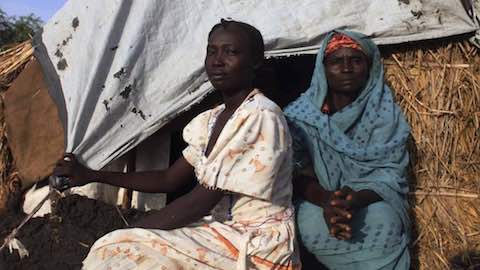- MENU
- HOME
- SEARCH
- WORLD
- MAIN
- AFRICA
- ASIA
- BALKANS
- EUROPE
- LATIN AMERICA
- MIDDLE EAST
- United Kingdom
- United States
- Argentina
- Australia
- Austria
- Benelux
- Brazil
- Canada
- China
- France
- Germany
- Greece
- Hungary
- India
- Indonesia
- Ireland
- Israel
- Italy
- Japan
- Korea
- Mexico
- New Zealand
- Pakistan
- Philippines
- Poland
- Russia
- South Africa
- Spain
- Taiwan
- Turkey
- USA
- BUSINESS
- WEALTH
- STOCKS
- TECH
- HEALTH
- LIFESTYLE
- ENTERTAINMENT
- SPORTS
- RSS
- iHaveNet.com: Africa Current Events

Quit Dithering in Sudan
By Matthew Ponsford (Thomson Reuters Foundation)
'The Nuba mountains is a region that is bereft of any governmental assistance, so aid is the only way that the people can receive any services'
The last doctor left in the war-ravaged Nuba mountains accused the international community of dithering and obfuscating rather than using its muscle to end an aid blockade affecting more than half a million Sudanese.
Dr Tom Catena, a physician from New York who was named the winner of the prestigious Aurora humanitarian prize, has been the only doctor permanently based in the mountains since the outbreak of war in 2011.
Catena told the Thomson Reuters Foundation that global leaders have the power to end the Sudanese government's block on aid, which has prevented urgently needed food and medical assistance from reaching the Nuba people.
"There needs to be more engagement of the international community and the powerful nations. They have to ability to apply enough pressure on the government to allow humanitarian aid to enter the Nuba mountains," said Catena.
Amid conflict between the government and rebel Sudanese People's Liberation Movement, Catena has treated up to 500 patients a day, be it for disease or injuries from explosives.
He does all this while dodging bombs - 11 so far - that land directly on his hospital.
Dither, Obfuscate
While a five-month ceasefire has held, Sudan's government continues to block humanitarian assistance into the region, which sits on the border with South Sudan and is going hungry after its farmers fled and rains faltered.
The United Nations estimates 800,000 people displaced by the conflict are cut off from aid in the war-affected areas in South Kordofan and neighboring Blue Nile state.
"Now that there is not enough food, the need for more aid has become urgent... Perhaps the will to push the government is not there but the people will suffer greatly if they continue to dither and obfuscate," said Catena.
The award handed Catena $100,000 in prize money and $1 million to share between three charities. Academy Award-winning actor George Clooney, who co-chaired the prize selection committee, called Catena a "selfless" role model.
Dr Tom
A missionary known by locals as "Dr. Tom", Catena has been on-call - 24 hours a day, seven days a week - at the Mother of Mercy Catholic Hospital since he arrived in 2007.
His patient list numbers more than 750,000 citizens.
Following a week-long break, the 53-year-old heads back to the Nuba mountains and hopes to stay there for years.
"I've had many patients - displaced pregnant women who live in caves, walk five hours just to get a checkup and ultrasound," he said by phone from Armenia, site of the award ceremony.
"They have a joyful anticipation of the new life inside of them and will not give in to despair - this encourages me to also not give up."
Catena said he hoped the award would increase international attention on three decades of conflict in the region, of which the six-year war is only the latest stage.
Threatened cuts to aid budgets in the United States and Australia, as well as Britain's pledge to employ aid in its national interest, risk eliminating what limited assistance is on offer, he said.
"The Nuba mountains is a region that is bereft of any governmental assistance, so aid is the only way that the people can receive any services. Without aid, even the limited healthcare and education available would be non existent."
WORLD NEWS & CURRENT EVENTS ...
WORLD | AFRICA | ASIA | EUROPE | LATIN AMERICA | MIDDLE EAST | UNITED STATES | ECONOMICS | EDUCATION | ENVIRONMENT | FOREIGN POLICY | POLITICS
Africa - "Quit Dithering in Sudan"